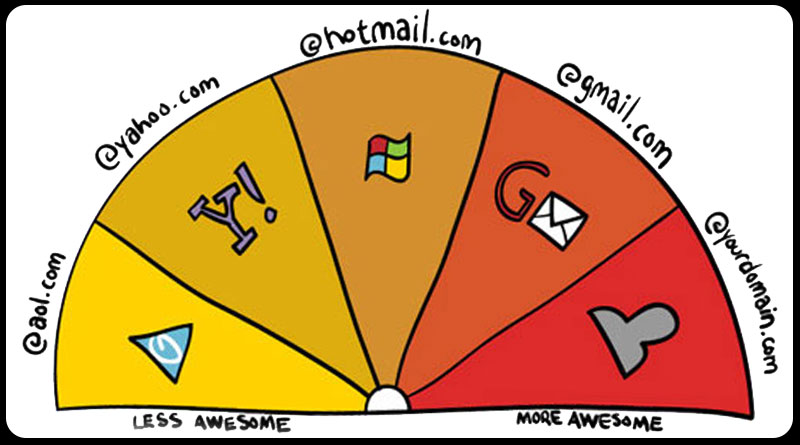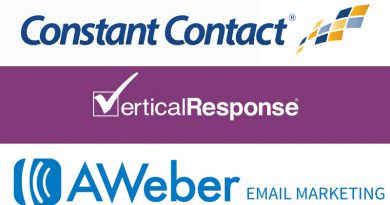What Does Your Email Domain Say About You?
What does your email address says about you? What do you want it to say about you? How does your choice of email domain affect your future?
I grew up in a world without the Internet until I reached 15 years old. At that point AOL came onto the scene… America online! Great I thought but I live in England? Nevertheless, it was the start of a dramatic shift in the way communication happened; communication between one human being to another, between businesses and people, between people in the same room. I waited for England Online, but Steve Case never brought it to us.
Online Representation Begins With An Email Address
The Internet as powerful, revolutionary, and incredible an entity it is, comes with some strings attached. For the first time in human existence we are faced with the challenge of creating an online representation of ourselves. We have more tools to refine our online image than ever; more ways to refine what we show people, what we choose not to show them, and the platform we use. If you are still not convinced we should think about our online image, I’d ask you to reflect on the times you casually browse an old “friends” Facebook page, trying as hard as you can to not pass judgment, or ascertain the quality of their life, by the content in front of you.
So what does this have to do with email address choice? Does it matter if someone tells you they are johnsmith@msn.com vs. johnsmith@gmail.com vs. johnsmith@lycos.com? Lycos really?
Does An Email Address With An Apple Domain Keep You Out Of Business?
I can vividly remember the first time someone gave me their @mac.com email address, it was the virtual equivalent of “Excuse me do you have the time?” “Sure let me just check my Rolex.” It begs the question, if people are assigning status to an email address, looking for some sort of semi-tangible value, when I’m applying for a job should I use gmail? It seems to be universally accepted as the go-to search engine & email provider. Perhaps it shows I’m forward thinking,I keep up with technology! This actually makes a lot more sense when taken in the context of a job application; if someone sent me a resume with @hotmail.com I would probably think twice.
And then… there are the @googlemail.com people. Where did they come from? Are they deliberately articulating a difference? Perhaps they feel it sets them apart from the crowd? If I were to place a bet, I’d guess they are the same folk that respond to “You’ve won 100 million dollars, all we need is your social security number and date of birth” emails.
The Creation of the E-Persona
I feel this is all part of the underlying theme of this article: the need to create an E-Persona. The alternative is rebellion and simply not caring, perhaps keeping the same email address for the next ten years. I’ve actually heard people relate it to the steadiness and reliability of the person behind the old school yahoo account; but I find this highly ironic given the unreliability and steadiness of the very service they are referring to.
There are always exceptions to the rule: I know a couple of CEO’s that still use Hotmail to communicate. They tell me proudly “Nobody would ever expect it!” To which I reply “That’s great, but what about the 3,000 junk emails you need to hunt through to find the genuine email?” Usually its no reply.
I wonder if we may look back and laugh at gmail, in the same way we do AOL? As being so outdated, a relic that provides its own electronic time stamp of its demise. It is interesting to see the way we interact with technology as Internet users. We often share the same options but make very different choices, and this is beauty of the freedom the Internet provides.



